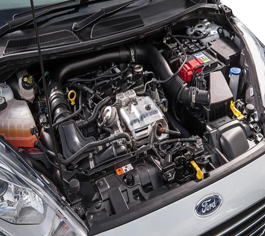Unlocking the Power of Engines: A Comprehensive Overview to Performance and Efficiency
Comprehending the elaborate mechanics of engines is vital for both performance enthusiasts and daily drivers. The solutions may redefine our technique to engine efficiency and efficiency in means that are both enlightening and important.
Comprehending Engine Basics
What constitutes the basic mechanics of an engine? At its core, an engine is a device made to transform fuel into mechanical power with a collection of regulated surges or burning processes.
The crankshaft then transforms this direct motion into rotational energy, which eventually powers the automobile. The camshaft regulates the opening and closing of the shutoffs, controling the intake of air and gas and the expulsion of exhaust gases. In addition, the engine counts on a thoroughly adjusted fuel-air combination, ignition system, and cooling system to ensure optimal performance and performance.
Recognizing engine essentials also includes recognizing the value of engine cycles, such as the four-stroke cycle, that includes consumption, exhaust, compression, and power strokes. Each phase is critical in guaranteeing the engine functions efficiently and efficiently. Proficiency of these basic mechanics prepares for exploring extra intricate engine dynamics and efficiency metrics, crucial for enhancing both power outcome and effectiveness.
Secret Performance Metrics
Trick efficiency metrics are crucial for examining an engine's effectiveness and power result, supplying useful understandings for both consumers and makers. These metrics work as benchmarks for engine efficiency, permitting educated choices in acquiring, style, and production.
Among the key metrics is horsepower, which evaluates the engine's capacity to do job over time. Torque, measured in pound-feet, is an additional vital metric that indicates the engine's rotational pressure, directly influencing acceleration and hauling ability. Fuel effectiveness, typically determined in miles per gallon (MPG) or liters per 100 kilometers (L/100km), analyzes just how properly the engine converts gas into movement, impacting ecological factors to consider and functional costs.
In addition, thermal effectiveness actions how well an engine converts gas power into helpful job, revealing insights into energy losses mostly through warm. Emission levels, consisting of carbon dioxide and NOx, are likewise vital, mirroring the engine's environmental influence and compliance with governing requirements.
Tuning Strategies for Performance
Tuning methods play a considerable function in enhancing engine efficiency by enhancing efficiency metrics recognized in earlier discussions (ford fiesta engine). Various approaches exist to fine-tune an engine, each adding to improved fuel economic climate and reduced discharges
One effective strategy is adjusting the air-fuel proportion, making certain the engine runs within the optimum burning regimen. A leaner combination can improve fuel effectiveness, but it must be balanced to prevent misfires or engine knock. In addition, reprogramming the engine monitoring system can rectify criteria such as ignition timing, which further enhances efficiency while maintaining power result.
One more important approach entails customizing the intake and exhaust systems. Updating to high-performance air filters and exhaust headers can lower back pressure, helping with better air movement. This enables the engine to breathe even more easily, resulting in enhanced burning effectiveness.
Moreover, the implementation of innovative adjusting tools, like dyno testing, supplies accurate data that enables targeted changes. Frequently checking these efficiency metrics guarantees that tuning initiatives generate the desired efficiency outcomes. Collectively, these techniques not just boost engine efficiency however likewise add to long-term sustainability in engine operations.
Upkeep for Optimal Performance
Normal engine upkeep is crucial for accomplishing optimal efficiency and long life. A well-kept engine not only runs efficiently yet likewise reduces the risk of pricey repair work and break downs. Full Article Key elements requiring regular focus consist of oil, filters, belts, and stimulate plugs.
Transforming the engine oil at recommended periods is critical, as oil lubricates moving components and prevents overheating. Likewise, changing oil and air filters ensures that contaminants do not hinder engine feature. Neglecting these elements can cause reduced effectiveness and prospective engine damages.
In addition, checking and changing worn belts and hoses is crucial to avoid abrupt failings. Timing belts, specifically, should be replaced according to the manufacturer's schedule to avoid disastrous engine damage.
Ignition system should also be examined and changed as essential, given that they play a vital function in ignition and fuel efficiency.
Future Trends in Engine Technology
Embracing advancements in technology, the future of engine layout is positioned to change efficiency and performance across various applications. Crossbreed and completely electric powertrains are becoming increasingly conventional, offering reduced exhausts and improved fuel effectiveness.
Moreover, technologies in products science are bring about lighter, stronger components that boost engine performance while decreasing power consumption. Advanced production methods, such as 3D printing, enable the creation of intricate geometries that enhance air movement and thermal administration, this contact form therefore enhancing combustion procedures.
In addition, the combination of artificial intelligence and equipment discovering is set to change engine diagnostics and performance adjusting. These you can look here innovations can evaluate substantial quantities of data in actual time, making it possible for anticipating maintenance and customized performance enhancements.
Verdict
Finally, unlocking the power of engines needs a complete understanding of their technicians and performance metrics. Executing efficient adjusting strategies and sticking to normal upkeep practices considerably improve engine abilities. As the vehicle landscape advances, welcoming future trends in technology, including electrification and advanced manufacturing, will be vital for maximizing efficiency and performance. This thorough approach not only benefits fanatics but also contributes to sustainable solutions in the realm of automotive engineering.
In addition, the engine counts on a meticulously adjusted fuel-air combination, ignition system, and cooling down system to make certain ideal efficiency and effectiveness.
Understanding engine essentials likewise involves identifying the importance of engine cycles, such as the four-stroke cycle, which consists of intake, power, exhaust, and compression strokes. Mastery of these basic auto mechanics lays the foundation for checking out extra complicated engine characteristics and performance metrics, essential for enhancing both power result and effectiveness.

Welcoming innovations in modern technology, the future of engine layout is positioned to change efficiency and efficiency across various applications.